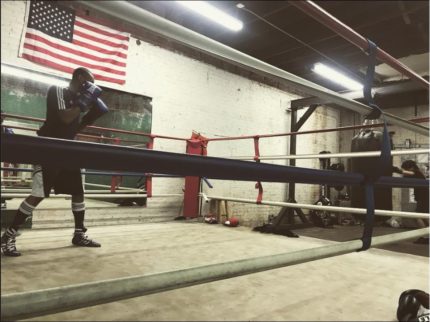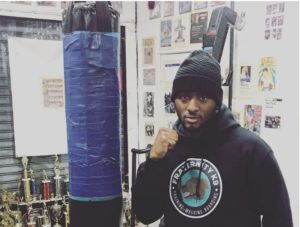On Winning
“Winning over” is sometimes the factor for success in the subjective nature of fighting. Does anyone know what winning a fight means? Even in street fighting, no one knows what winning is unless everyone says what “winning” is or someone gets knocked out. When I was a kid, I once watched a fight in which one boy was beating another boy up with punches—bloody and bruised, but not out. When the one kid who was beating the other kid got tired, they both fell to the ground and the bloody boy strangled the exhausted boy until adults came in to stop the fight. In all ways, the majority of us would rather have been the kid who got strangled at the end. I, as many other people, still believed the one who got strangled in the end to be the winner. See, fighting is much more complicated than being viewed as “what if it were life or death.” If it were life or death, maybe the boy who got strangled would have done something other than boxing the other kid’s head to a bloody pulp, too. Maybe knowing he was in for probable death unless the other boy gets exhausted, the bloody boy would wave a white flag. Maybe the boy who was punching would conserve more energy or even run away to grab a rock after proving that the other kid was no match for him. Maybe they both show up with knives. I don’t mean to undermine that the bloody boy indeed showed heart for not quitting (even though the nature of quitting doesn’t easily lend itself to standing-up.) The point is that fighting is too subjective to clearly decide a winner and loser, so to add the “what if” factor is to continue the argument and support the idea that fighting as a whole is not easily judged. When discussing boxing, it must be established to be hell’o much more than hitting and not getting hit – so much more that such a viewpoint is only the layman way of scoring a fight.
The Fighter vs. The Exhibitor
The great reveal of a boxer’s will tells the grand story of developing and great successes. This is the fight inside the person. It is the most important part of a boxer (unless you have the gifts of a Mike Tyson or Roy Jones Jr. whose talents far exceeded others and undermined the need for any other substance – at least in their primes). A fighter is defined by the desire to face the most difficult challenges, to struggle. The only thing a fighter is at his heart is someone seeking the exhilaration of a difficult battle.
What in life have you overcome? Everything in life is a fight. Boxing, therefore, is the greatest gift you can give anyone. Boxers learn struggle, work ethic, boredom, discontent and positivity, responsibility, fear in the smallest to the grandest ways. You can’t avoid the battle; clinching is not even technically allowed, and running is frowned upon. Above all, the boxing gym is safe, controlled. It’s not tragic.
You can lose. But you must overcome. This is not mutually exclusive.
Corollary, a boxer can have 100 fights and not learn much if he allows himself to not learn. A boxer has to have substance and process the deepest aspects of boxing to be a top boxer. Toughness and talent usually don’t dominate the puzzle. These guys on Shobox who lose, they often look just like they did when they were rank amateurs. And they can have the best camps, but it’s ultimately on the boxer to be better. A bunch of fights shouldn’t be necessary to learn to get your left hand up to avoid a right hand.
The fighter development has to start within. Polishing has to be done intricately. Fighters at some point, if they’re worthy of their talent, probably need intensive development, but too many boxers end up going to some famous gym and get worse doing some form of bullshit if they have not already been doing a different sort of it.
Are you a fighter who wants to struggle and test himself against the rigors of “best?” Or are you a person who wants to show your talents for the glory, to prove yourself to your mom, to have fun beating up people who were never supposed to beat you? If you’re the latter, you’re just an exhibitor at heart.
Winners and Losers
About a small handful of true winners in the field (the community of boxing). The rest have loser mentalities. “Learning experience,” “made it far,” “did well against top guys,” “got robbed,” “showed-out well,” “got a pro style,” “not made for the amateurs,” “is capable of beating anybody,” “we felt we won,” These are all cockamamie. At some point if you’re trying to be the best you have to be accountable. If you’re as good as you pretend to believe you are, everyone, the judges AND your opponent will feel you won. The loser rationale is a valid scapegoat if you’re just expecting to be in the mix. Forget the “victim pics” (pictures next to the guy you just lost to) and the “I’ll be back” Instagram posts. Instagram fame is your participant’s trophy. It’s fake fame and fake confidence. If you’re a loser, become something else and let your performance speak. In this sport, we’re either winners or losers.
If the other guy thinks you lost, or if one judge thinks you lost, you better treat it like you didn’t win shit. “Catch bodies or make changes.”
On Humility
There are two kinds of people who lack humility: the ones who earned the right to be arrogant by being profound successes and the ones who are deluded by their minimal successes.
Humility is knowing the worst things are possible and to suffer to avoid those things from happening. If we all can realize we’re longshots, we’ll improve our chances to overcome. That is the categorical point of boxing.
Are you above taking directions? Are you above suffering? Are you better than everyone or are you better than most? The distinction is astonishing.
On Boxing Equipment
Boxing is the only sport that we do so much practicing it without at all doing it. We box our shadows, so when we use a device, we turn it into tradition and romanticize it. Even if it’s completely bullshit. There are more effective ways to use equipment than some legends have even used various equipment.
Case in point, the slip-bag. I’m going to get flack on this, but it’s just a tool to give someone a tangible feel for moving the head – proprioception of the head, if you will. If you already can shadowbox slipping appropriately (not too exaggerated), why practice slipping a bag that moves forty times slower than an average punch? Then people slip it before it hits the back of their heads by timing the arc or seeing in the mirror. Can we make slipping more impractical? The practicality of so many devices gets lost in coaches and boxers trying to be innovative and cool. The broom stick with a glove, double-end bags that are too tight, just to name a couple. Don’t get me started on the speedbag…
The Most Selfish Pursuit in the World
Boxers spend every day of their lives thinking about themselves. It’s the life of boxing. When they’re not thinking about their diet and training, they’re dreaming about the attention they want. The world seems to move at their schedule and on their whims. Boxing is the greatest art in the world, and it gives you more than anything pound for pound, but it doesn’t require you to give back. Even in a fight, a boxer is supposed to worry about herself, not the other gal. She is supposed to fight her own fight and make her opponent fight that fight. (If you’re a male boxer, you may not even understand the context here, because everything is about you.)
Who Ever Said Fighters Are the Nicest People?
Contrary to the old adage and romanticized tales, boxers continuously prove to be the biggest ego-inflated dickheads who think they’re better than everyone. It’s not till retirement and failure’s humility that they start to actually be the nice guys they may have pretended to be. Because boxers know how to act like they are down to earth, and they’re good at it because of where they’re from. So remember, retired boxers are the nice guys.
And it has only gotten worse. Thanks for little, Floyd.
The Pitfalls of White Collar Boxing
• White collar boxing is generally not results driven or the boxers fool themselves into thinking they’re getting optimal results.
• White collar boxers tend to dwell on motivation and how they “feel” when they train (including atmosphere, friends training, coach rapport). White collar boxers care more about this than performance results.
• They shy away from all sorts of discomfort that they can’t control. This is different from seeking any discomfort that they choose (pressure, abstaining from foods, impact, etc.) They respond to being told certain things in specific ways. Real fighters, the best ones, respond when they hate it the same way they do when they’re motivated. The only things that matters is trust and the information—not the matter of delivery of information. That’s how coaches weed out the guys that can’t go anywhere. When their coaches discourage them. When they want a different gym. When they completely hate their coach. The ones bound for success don’t look elsewhere.
• They train because they love to train. So when they hate it and don’t want to go, they quit. It is not competition driven. It is fake perfection.
Are you the white collar gym boxer you have no idea I’m talking about? Maybe you can tell you’re a white collar boxer if the elites of the gym don’t train with you and don’t spar with you when they’re the same age and weight and you already ‘move around’ regularly. If you are spar-ready and don’t spar, you, sir, can look no further because you are a “no-collar boxer.”
Positive vs.Negative Reinforcement
Pressure can be bad, but even a tiny bit too much positive reinforcement worsens weak character in any competitive environment. If we acquiesce people, they become losers who become prey to false accomplishment.
Comfort becomes more important when you over praise mundane improvement. And the common denominator in the most successful people in history to the gym, is willfully accepting discomfort. This is the #1 reason too many pad-work sessions and private sessions are unacceptable. All the losers love it.
On Judging
The way the subconscious onlooker tends to watch boxing: he tends to fixate on the person who looks better stylistically. When that happens, he mainly sees the punches thrown and the slips and the attempts of that one fighter, which, in turn, makes that fighter look to win in even, head to head action. Try it. Stare at one fighter in a fight. Guaranteed, that fighter will look to be winning if its close.
Peace Beats Dreams
“You fool. The people applauding are not your friends. They may even be your enemies. Treating what you do like success is like someone treating a landed jab as a win. You own your experiences, overcoming. Still, I hope you find yourself more than I hope you find success. The showing off, the stardom, and the luxuries are really just momentary, and therefore, make believe. Most people can’t realize it until they’re done chasing it. At some point you’re going to realize that the only thing that matters is how you die. Did you make a difference?” – Coach O’Toole.
“If you don’t dig deep inside your soul, you won’t have legs.” – Frank Zinzi
“If you don’t look in the mirror honestly, not listening to a thing that the people who don’t matter say, you will fail. Stop looking for approval. – Al Alvir
On Weights
Weights should be done slow, not fast. Weighted punches done quickly has a negative effect on the recruitment of muscle fibers. It causes hitches and loading of the muscles.
With all the developments and myth busting of prior sciences in strength training for sports, you can never go wrong with practicing as close to the real thing as possible. To punch harder, we don’t need to get stronger against gravity, we need to get stronger by way of force towards the target via proper form, period. Why people insist on putting resistance downward when punching horizontally is baffling. And then adding resistance to uppercuts usually recruit the wrong muscles because of the unnatural load that contradicts the proper way any upward punch needs to be thrown. Additionally, all punching is done loosely with little to no muscular effort at the beginning of a punch; this is not like explosive jumping or even throwing a ball in which require greater loads (including the wind-up). Punch harder by literally practicing punching harder. This fast twitch action of explosion occurs ONLY at the end of the punch. This is why punching is a lot different than fast twitch muscle recruitment for sprinting or tackling impact where there are much larger muscle groups involved. Thus, if you’re going to use proper resistance without hurting punch form and speed, the resistance should only be done at the 2-4 inches at the end of the punching “arc.” It’s called a heavybag. Put the hand-weights down. 16 oz. gloves are even too heavy for a full boxing training session.
On Cross-Training
K.I.S.S. Keep it simple, stupid. That’s an old adage for a reason. Simple. Why boxers do burpees followed by shoeshines followed by ladder drills makes no scientific sense. This is a sample of the array of fitness fads that impact boxers’ regimens. They’re just cool hodge-podge cardio routines put together that make for cool social media videos while boxers stray from the things that really work. That’s the short of it. (see Dr. Ofir Isaac for more on debunking bullshit strength coaching).
On Self-defense Training
There’s no quick fix approach to self-defense unless you’re gambling on getting lucky. Men who’ve been in fights and assaulted don’t even have the practical capability to do some course and come out ready. Sure, there are good pointers in some courses, but you’re either lying to yourself, you’re believing a lie, or you just want to be minimally informed in case you’re in a situation and need to get lucky.
Self-defense courses are garbage, period.
The only surefire way to be comfortable is by training like a fighter. And that’s not a taught course, it’s a course of life.
Don’t fall for the scams.
Red flags:
Classes. Unless you’re doing a grappling art that requires partner work to learn, holding and hitting pads don’t help if you’re inexperienced. Plus, 3 times a week for an hour for 3 months is a joke. You’ll probably see all sorts of people being praised for doing things well and hardly being corrected.
Never live sparring. You simply can never learn without the anxiety and the unknown and the pain and exhaustion of doing it for real. This is why knife fighters and gunmen have to experience the appropriate anxiety levels that even they may feel in true live or death experiences. There is no concept in fighting that holds true without being tested. If you can’t find proof that the moves work by witnessing live action (especially today’s age of Youtube), it’s probably bullshit.
Shape. If you attend any martial art and there is little emphasis on fitness, it’s fake. To believe that training to any competence in any worthy art isn’t rigorous and that to perform with competence doesn’t take fitness (even an out of shape ex-fighter has to get lucky to perform), you have to be scammed. And if you advance remaining in poor shape, you’re being scammed too.
On Trying Boxing for the First Time
If you want to see if you’ll like it:
Trying boxing to see if you like it is like trying school to see if you like it. Or maybe like a trial run through the military. It simply does not work and does no justice to the pursuit. You have to be honest and ask yourself if you want the benefits that you’ll receive in the boxing culture.
Then commit. Immerse yourself.
The absolute fact is that if you train correctly, you’re eventually not going to like the training it takes. But you’ll love all the outcomes. That is a promise.




